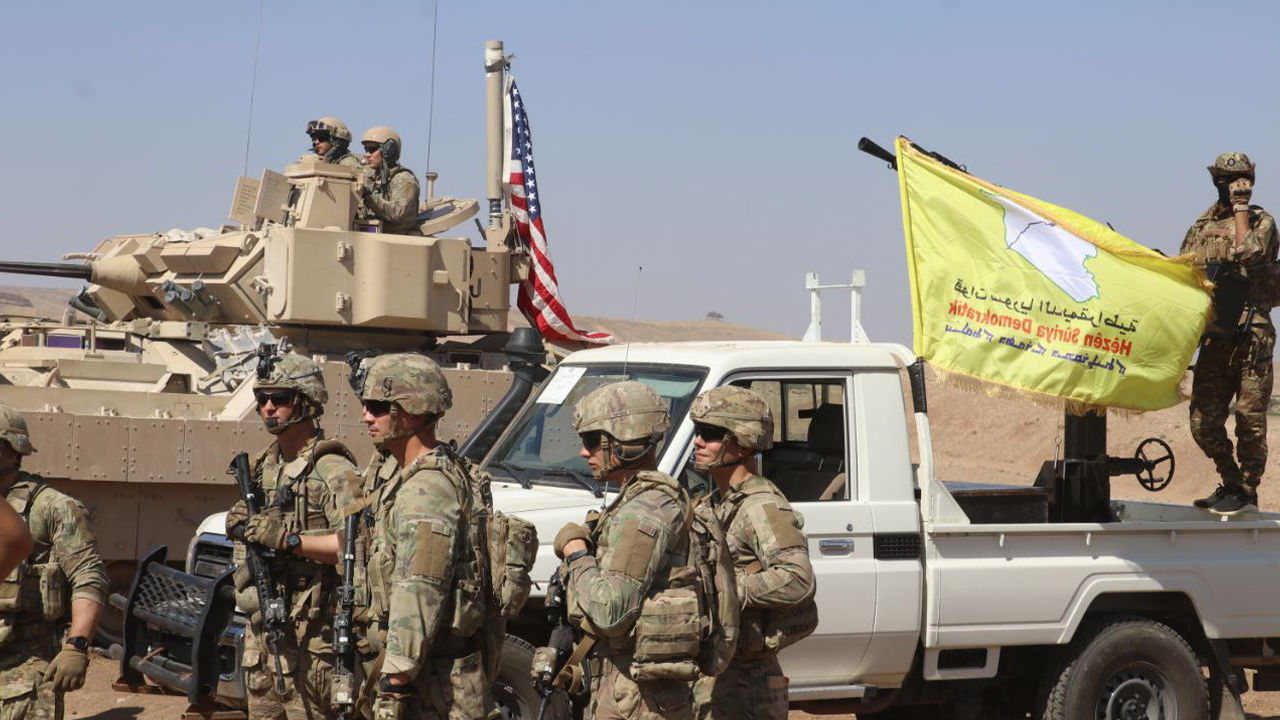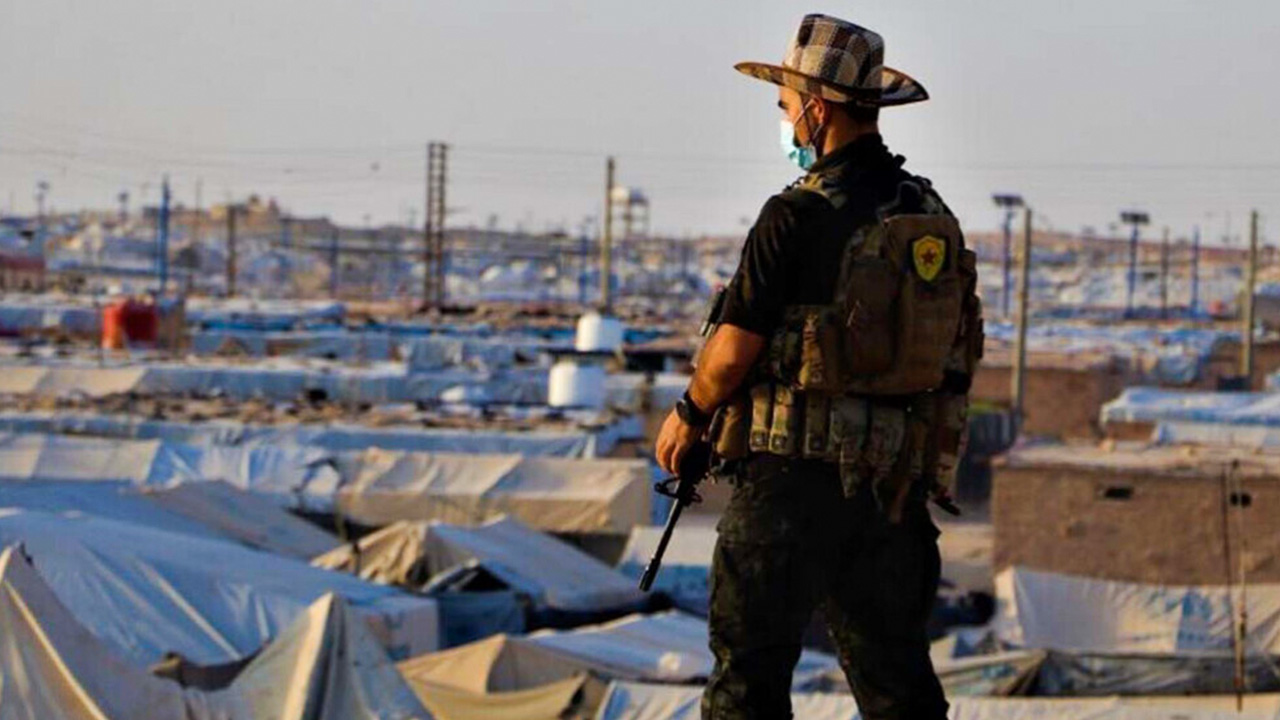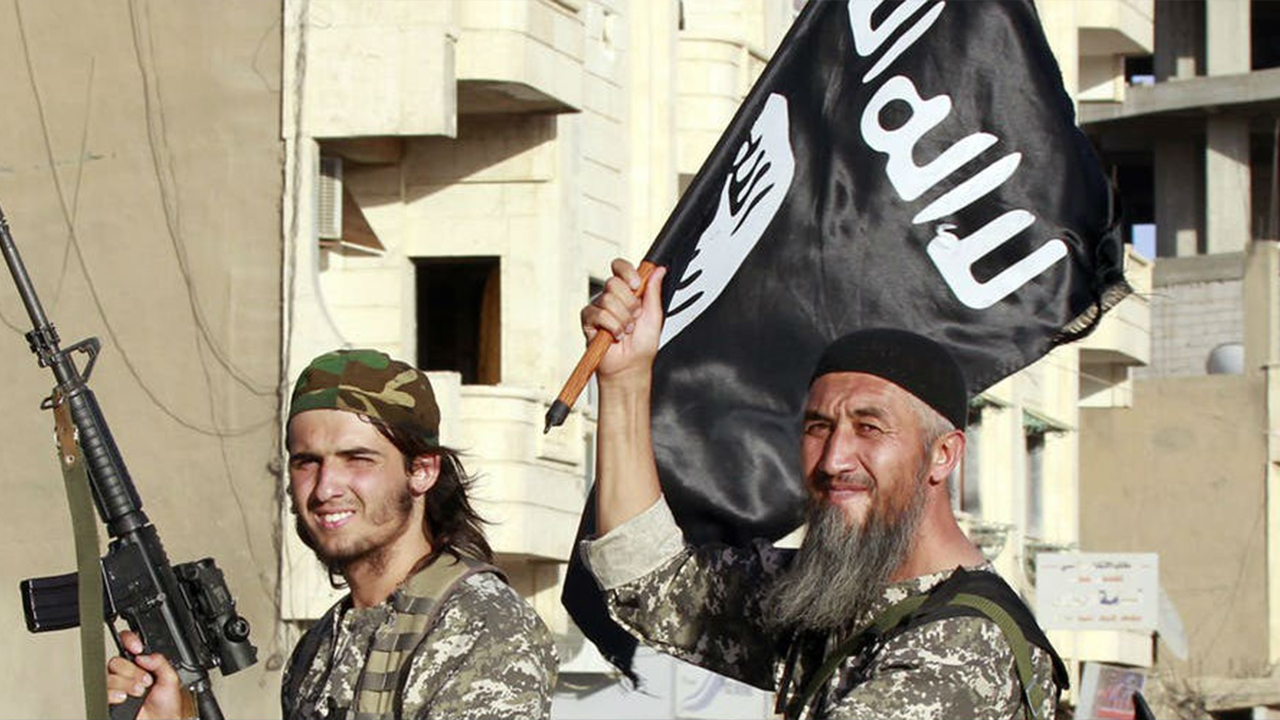Matt Broomfield
Turkish air strikes have this week caused chaos and multiple casualties among members of the Kurdish-led Syrian Democratic Forces (SDF), the multi-ethnic body which is the official partner on the ground of the USA-led International Coalition to Defeat ISIS. The SDF is charged with holding tens of thousands of ISIS members on behalf of the world, including over ten thousand Syrian, Iraqi and international male fighters, plus a much larger number of ISIS-affiliated women and their children.
Some strikes this week fell near the Jerkin prison in Qamishlo, which was also targeted by Turkey during their 2019 invasion of the region. ISIS prisoners escaped into Qamishlo during that assault, and while the Qamishlo facility survived this week’s attack, the assault brings back memories of the so-called ‘Peace Spring’ operation, which had a catastrophic impact on local efforts to eradicate the ISIS threat.

The worst incident in 2019 occurred in Ayn Issa camp, where sleeper cell attacks in and around the camp compounded Turkish bombing drawing near to the camp on 13 October, triggering widespread panic and mass breakout attempts from the secure section for ISIS-linked detainees. Humanitarian actors were forced to withdraw as the situation descended into chaos. Within days, approximately 13,000 IDPs had been evacuated from the camp to Areesha camp, Mahmoudli camp near Tabqa and other, ad-hoc encampments.
The large IDP camp at Ayn Issa had been one of the most successful established by the Autonomous Administration together with international partners. Save for the secure section housing ISIS-linked foreigners, Ayn Issa was an open camp with strong participation from camp residents in the local economy, and a steady rate of return back to home communities as reconstruction efforts advanced in nearby Raqqa. However, Turkish targeting of this key piece of humanitarian infrastructure caused years of humanitarian work to be erased overnight. Worse yet, hundreds of ISIS members were able to flee from the camp’s secure section during the chaos, most of them travelling directly into the territory newly seized by Turkey.

ISIS sleeper-cell attacks spiked for many months during and after Peace Spring – not only because of the breakouts, but because Turkish-occupied regions rapidly became both a route of transit for ISIS escapees and a staging-ground for fresh terror attacks. Another invasion would be equally catastrophic, as this week’s pre-emptive air strikes show.
Another round of air strikes this week killed guards at the notorious Hol Camp, which houses many highly-radicalised ISIS-affiliated women along with innocent IDPs from Syria and Iraq. The situation in the facility was already precarious enough, and once again the assault – which allowed multiple women to flee the camp – brought back memories of 2019. At that time, the camp was rocked by repeated uprisings and badly affected by the flight of all international NGO personnel and the withdrawal of camp security forces to concentrate on the fight against Turkey.

Now it seems this ugly, recent history is repeating itself. A Turkish invasion will not only mean the chaos of air strikes and subsequent opportunities for ISIS cell members to spread further havoc. It will mean creating new swathes of territory for ISIS to operate in. It will mean, as Syrian Democratic Forces commander Mazloum Abdi warned this week, the suspension of SDF anti-ISIS operations to focus on fending off the greater threat posed by Turkey and its ragtag force of jihadists and opportunist militiamen grouped under the banner of the Syrian National Army. It will mean humanitarian disaster as Turkey strikes power stations, hospitals and other vital infrastructure, creating the perfect conditions for ISIS to make back the ground which the Kurds and their local allies wrested from them on behalf of the world across many years of bitter warfare.
NATO’s Foreign Ministers meet in Bucharest next week. Let us hope they will recognize the folly not only of opening the door to ISIS’ return by acquiescing to a fresh Turkish invasion, but of sending Turkish President Erdoğan the message that he is free to act unilaterally against a supposed ally of the free world in the fight against terror, extremism and autocracy.
Matt Broomfield is a freelance journalist, poet and activist. He writes for VICE, Medya News, the New Statesman and the New Arab; his prose has been published by The Mays, Anti-Heroin Chic and Plenitude; and his poetry by the National Poetry Society, the Independent, and Bare Fiction. His work was displayed across London by Poetry on the Underground, and he is a Foyle Young Poet of the Year.










